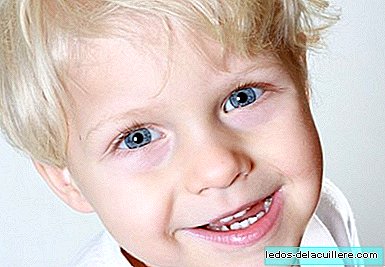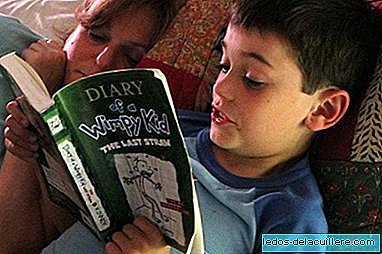
This is one of the cases that caused the most stir in the program. The mother often slept with her 18-month-old daughter and maintained a relationship of mutual need as usual.
It seems that neither one thing nor the other were considered "good" by the experts of the program and wanted to modify these behaviors.
It's been a long time since Colecho is accepted as a possibility at bedtime with babies and children. In fact, the AEPAP (Spanish Association of Pediatrics in Primary Care) comments on the following: "Probably many women find it more comfortable to sleep with the child in the same bed ... Children who share the bed tend to be calmer and sleep better."
According to the AEPED "There is no evidence to indicate that it is better for the baby to be in a separate room. It is more a matter of culture and a personal choice of each family". Therefore there is no physical (or psychological) contraindication for the girl in the video to sleep with her mother. It is true that we must take into account some considerations when collecting to avoid risks, but say “With how big it is” (which an adult woman says that surely does not sleep alone) or "That mother must be very uncomfortable" It is a simple personal judgment that should not lead to any therapeutic action.
Voiceover video: “During the last days a sound invades every corner of the house. It is the anguished cry of Victoria's daughter calling her mother. ”
No wonder I cry. The girl appears alone wandering around the house. This girl is a year and a half. He must know his house to the millimeter and yet he is in a foreign house, alone with his mother (does he have no father?) And with a lot of unknown people who seem to be trying to separate her little by little from her mother. I think I would also call my mother disconsolately.
In the following sequence the mother, with very good criteria, says: "I don't know what's happening to you this week, it's very strange ... ”, Which I interpret as a“ normally it is not so tearful or so attached to me, but this week it is ”. The professional, who seems not to understand it this way, replies that "This anguish she is living, if we don't correct her, she will have her whole life, and you know it ..."
"And you know it" is to put in the mother thoughts that she has not expressed and is to make her a participant in the theories of the psychologist. I believe that this mother does not know if that anguish will last a lifetime or will happen when she leaves that house, so she is in this program, to learn (among other things, I suppose).
Separation anguish is a phenomenon that occurs when the person who separates from the other is not prepared for that event. Various theories about the natural evolution of the human species establish that the moment when a child begins to need to separate from his mother it's about 3-4 years and therefore that is the moment when he could begin to socialize.
Children, like adults, need security before taking a new action. Adults are allowed to choose and are not forced to do things for which they do not feel prepared. Why the children yes?
In the post Teenage Mothers: disconnecting a mother from her daughter (II) you can read the rest of the comment regarding the video.
Video | Tu.tv On Babies and more | Protest against the program "Teenage Mothers" of Four, "Teenage Mothers" on television help or morbid ?, Supernanny's disastrous method of sleeping children












